Lawmakers, advocates push for changes in youth juvenile justice system
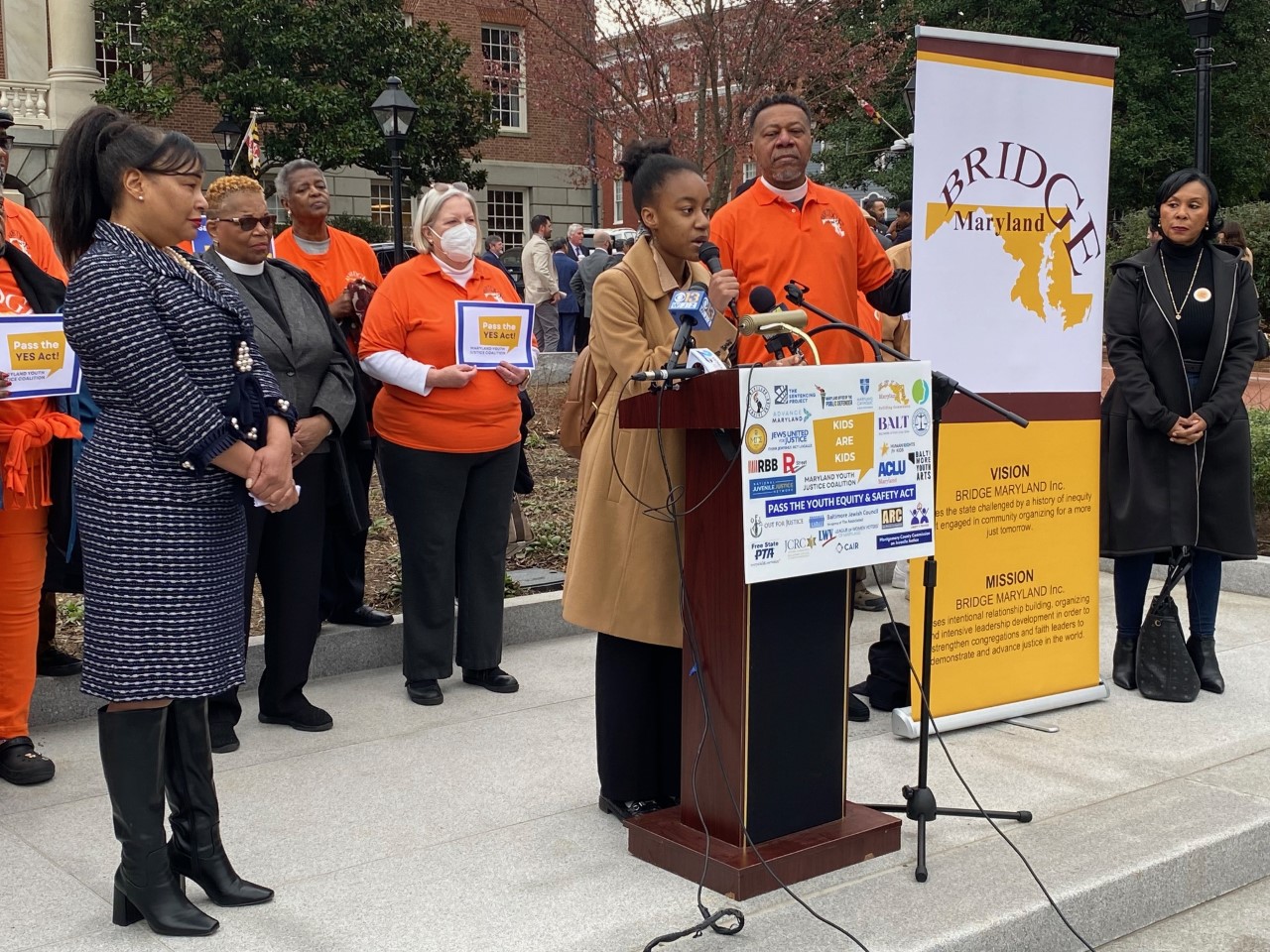
Damon Walker recalled when he sold drugs as a youth and was charged as an adult at age 16. He said he’s grateful to a judge who resentenced him to the juvenile court system.
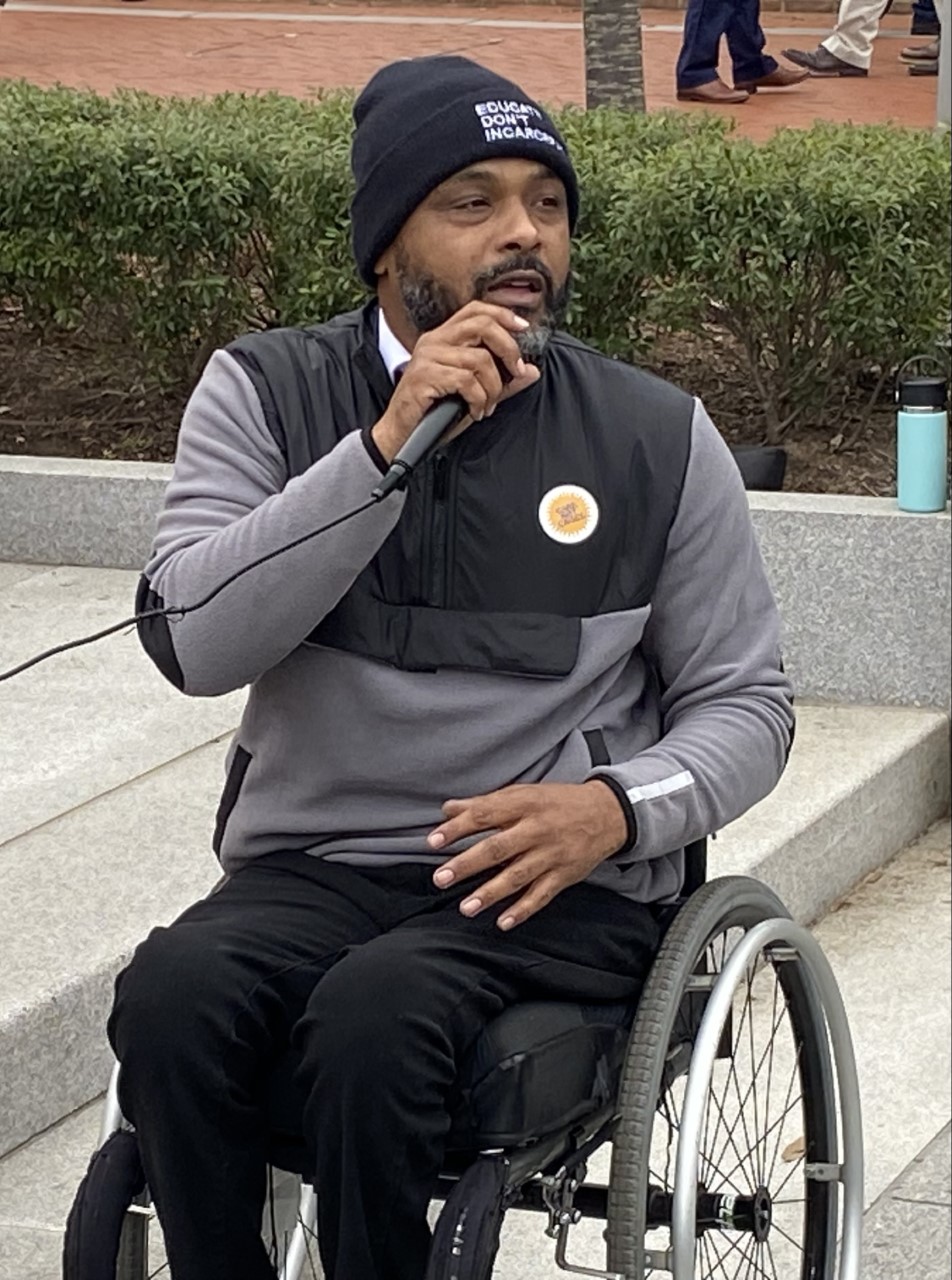
Damon Walker talks about how the juvenile justice system changed his life at a rally Feb. 16 at Lawyers’ Mall in Annapolis. He supports the Youth Equity and Safety Act, which seeks to ensure youth charged for a crime enter the juvenile court system first. Photo by William J. Ford.
“I really appreciate it because the juvenile system saved my life,” said Walker, 45, a youth opportunities coordinator at Baltimore Youth Arts. “It gave me a lot of perspective to not sell drugs anymore.”
That’s why Walker wants Maryland lawmakers to pass legislation that ensures youth charged with a crime first enter the juvenile justice system.
The bill labeled the Youth Equity and Safety Act is sponsored for the third straight year by Del. Charlotte Crutchfield (D-Montgomery) and second straight year by Sen. Jill Carter (D-Baltimore City).
Walker and dozens of child and criminal justice advocates and those who went through the juvenile court system testified on the bill last week before the Senate Judicial Proceedings Committee. Some of those same individuals may return to Annapolis for a March 2 hearing before the House Judiciary Committee.
The legislation seeks to flip the state’s current practice of automatically charging some juvenile defendants in adult court. Instead of presumptively sending those cases to criminal court and requiring defense attorneys to petition the cases back down to juvenile court, the process would be reversed.
Currently, certain defendants are automatically sent to criminal court: youth 16 and older who are charged with crimes of violence, youth 14 and older who are charged with a crime punishable by life imprisonment and youth charged with a felony who have been previously convicted as an adult of a felony. The bill would repeal these exceptions to the juvenile court’s jurisdiction.
If the bill passes, Carter said Thursday youth 17 and younger would not be automatically enter the adult court system.
“The burden should not be placed on children to convince a court, ‘I’m a child.’ That is a ridiculous and unfair burden,” she said. “The state should have the burden to say, ‘This is an exception and this child in this instance should be tried as an adult.’”
Joshua Rovner, director of youth justice for The Sentencing Project in Washington, D.C., said lawmakers in eight other states – California, Hawaii, Kansas, Kentucky, Missouri, Oregon, Tennessee and Texas – approved legislation in which all cases involving youth start in juvenile court.
Rovner said Maryland has 33 offenses that automatically sends a youth’s case to adult court.
“This is unapologetically a public safety bill,” he said.
Sen. Chris West (R-Baltimore County) asked whether all youth should stay in juvenile facilities when awaiting a court date.
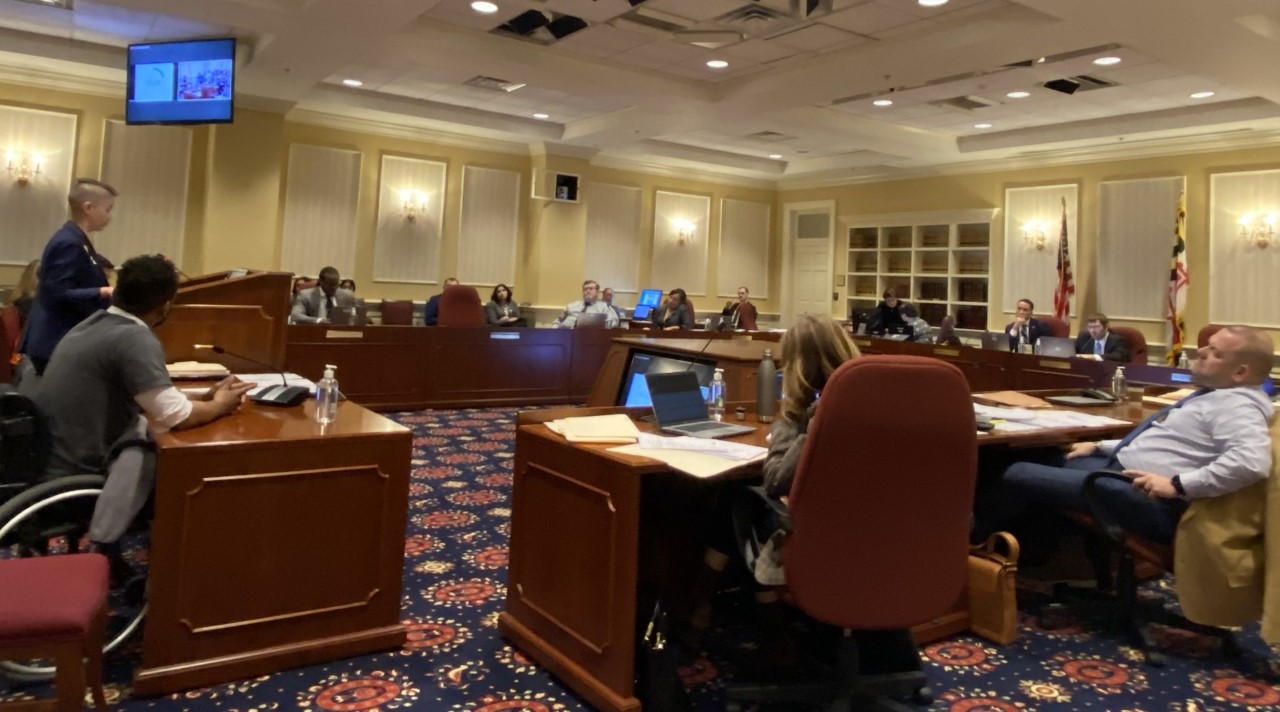
Jenny Egan, a juvenile public defender standing at lectern, testifies Feb. 16 in support of the Youth Equity and Safety Act before Senate Judicial Proceedings Committee. Photo by William J. Ford.
Jenny Egan, chief attorney in the state’s public defender’s office juvenile division in Baltimore, said yes because current law requires teenagers charged with violent crimes such as first-degree murder stay in adult jails awaiting trial.
“If we want to make sure all juveniles stay in juvenile facilities prior to their trial dates, then we should amend this bill to add language to that effect,” West said.
The majority of youth in Maryland incarcerated in those places are people of color, according to a report released last week. Four youth justice organizations analyzed lessons learned during the COVID-19 pandemic and changes made to reduce incarceration among young people.
The document highlighted Maryland as a state with fewer youths entering the court system starting in 2019 at 19,058. That decreased to 10,300 in 2020 and to slightly more than 7,600 in 2021. However, nearly 7,300 intakes took place between January and July last year.
During those same timeframes, at least 68% of youth detained were people of color. The report noted that Maryland Black youths are mostly impacted by the juvenile system “to be arrested, referred and petitioned to court and placed out of their homes.”
Flematu Fofana, 16, attended a rally in Annapolis last week to advocate for passage of the Youth Equity Safety Act. She said she uses her academic prowess to ensure she isn’t part of the juvenile court system, but still feels a bit of anxiety being amongst a small group of Black high school students in Carroll County.
“I see in my school all the time that if [Black students] get in trouble once, they’re more likely to get in trouble again…and you get that label of being ‘this Black kid,’” said Flematu, a government affairs intern for the Center for American and Islamic Relations. “Those are also the kids that don’t end up graduating and end up in the justice system, some through no fault of their own and without the right support. It’s so frustrating.”


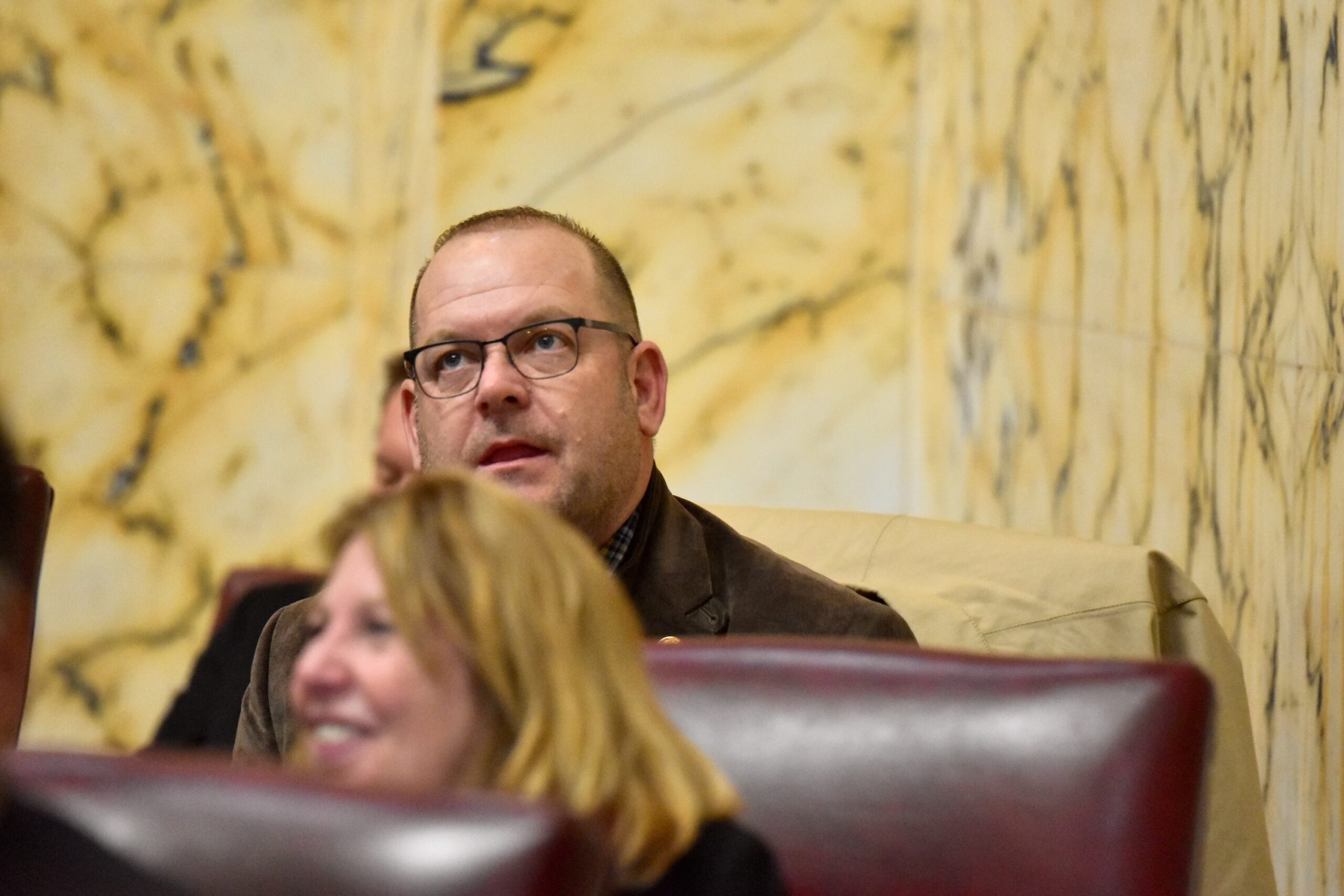
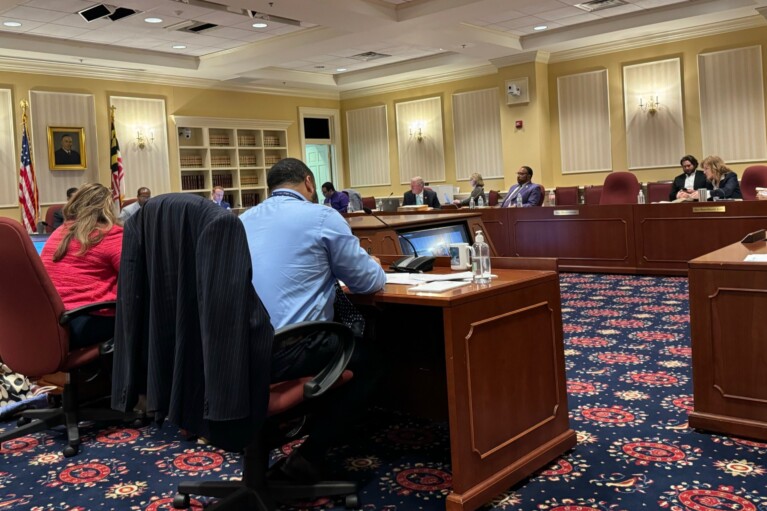
 Creative Commons Attribution
Creative Commons Attribution